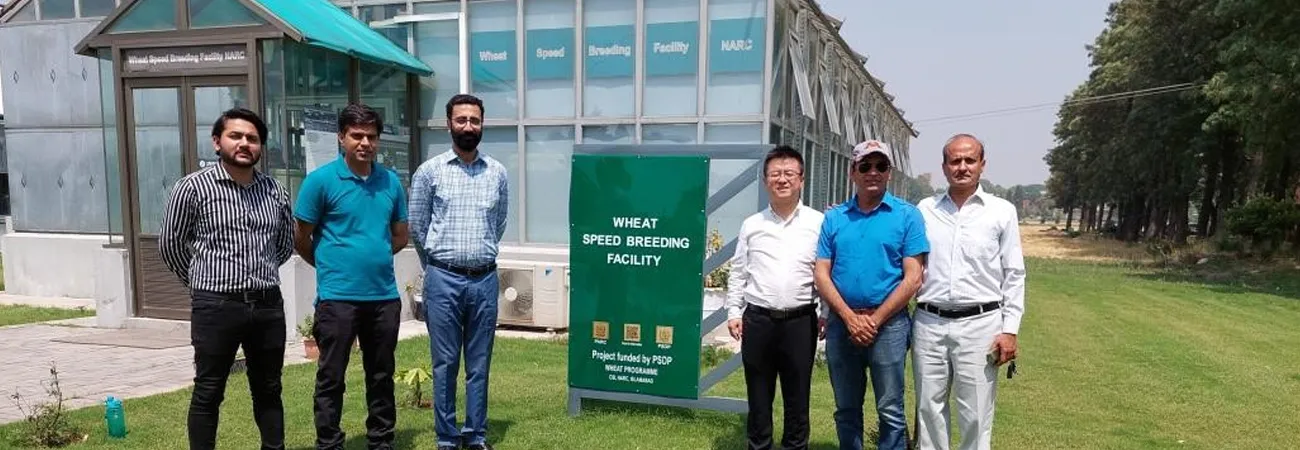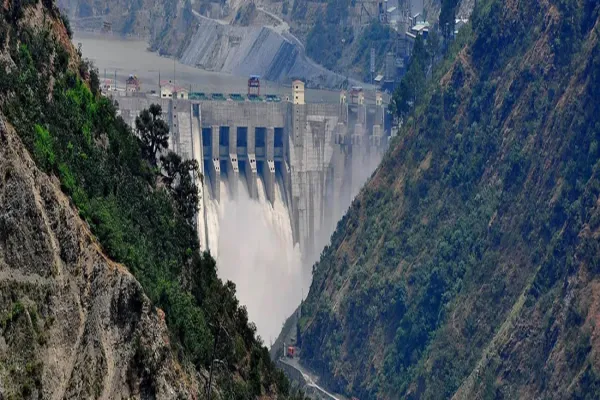i NEWS PAKISTAN
In the vast wheat fields of Punjab Province, drones are patrolling the air, and intelligent systems have replaced manual labor to take care of crops. Free from the pain of field labor during the broiling summer season, local farmers could accurately monitor fertilization and irrigation with just a few clicks on their mobile phones or tablets. “Previously, I could only see which fields performed well when it was almost harvest time.
Now, I check crop health regularly on my mobile and can fix problems early, which has helped me improve yields and reduce losses,” Muhammad Taj from Gujranwala, Punjab, marvels at the new agricultural artificial intelligence app, Kisan 360, newly installed on his phone. The China-Pakistan cooperation project Using Computer Vision to Realize High-Throughput Crop Monitoring for Climate-Smart Agriculture has injected sci-tech element into Punjab’s farmland, with Kisan 360 is the result of their painstaking efforts.
“We use drones equipped with visual recognition equipment to achieve intelligent management of crop monitoring, cultivation management, pest and disease analysis, and agricultural production, including growth determination, health monitoring, water requirement analysis, fertilization, and pesticide application,” introduced Dr. Wu Jun, the Chinese project leader. Initially, local farmers expressed doubts about smart technology. “It’s too complicated for us, and its effectiveness and practicality have not been proven.”
The Pakistani team addressed their doubts by producing text guides and audio-visual materials on vegetation health maps in the local dialect and sharing them with farmers in real time. “I come from a farming family, understanding very well the problems faced by Pakistani farmers today, with severe heat waves and water shortages becoming our main challenges. Providing farmers with real-time data to help them optimize their planting decisions and ensure food security for their communities is urgent,” Saqib Ali, a Pakistani researcher at the China-Pakistan Joint Laboratory for Agriculture, told Gwadar Pro.
“Our AI APP now live on both the Apple App Store and Android Play Store. We have conducted training sessions in Punjab and Islamabad, with a user base of approximately 1,000 farmers.” “Taking fertilization as an example, Kisan360 uses satellite imagery and artificial intelligence to provide farmers with real-time insights into moisture and nitrogen levels, helping to identify areas that require precise fertilization, then farmers can listen to these reports in local Urdu language,” the researcher added.
Saqib Ali highlighted that bilateral team have deployed a ChatBot in the app using DeepSeek. He emphasized that as an open-source model, it could be used to fine tune by using their own Pakistani related crop data. “It is in the testing phase. We are fine-tuning DeepSeek to better understand and address the specific farming needs of Pakistan, incorporating local agricultural knowledge to provide more tailored insights for farmers. DeepSeek has proven to be extremely valuable for us in understanding and meeting the unique challenges of farming in Pakistan.”
“Pakistan is currently in urgent need of agricultural practices driven by advanced technology. This project is an opportunity for Pakistan. After promotion, more and more farmers will be interested in it, which can bring substantial changes to local agriculture.” said Dr. Sultan Habibullah Khan, Director of the Center for Agricultural and Food Security Research at the University of Agriculture, Faisalabad.
Dr. Wu Jun told GP that the World Bank and the Asian Disaster Management Center have provided funding support for this project, emphasizing the importance of this innovative solution in addressing climate challenges and enhancing agricultural sustainability. “In the future, our China-Pakistan Agricultural Laboratory plans to promote this technology throughout Pakistan within two years, to comprehensively promote sustainable agricultural development through AI+, as a new tool under the new era.”
Credit: Independent News Pakistan (INP)









